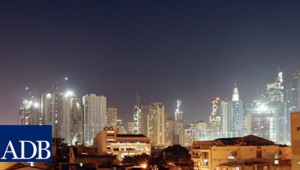ADB raises growth forecast for PH

The Asian Development Bank (ADB) has raised again its economic growth forecast for the Philippines for this year, expecting the country to grow by 6.4 percent on the back of improved investor sentiment. INQUIRER FILE PHOTO
MANILA, Philippines—The Asian Development Bank (ADB) has raised again its economic growth forecast for the Philippines for this year, expecting the country to remain one of the fastest-expanding markets in the region on the back of improved investor sentiment.
In its latest “Asian Development Outlook” report released Tuesday, the ADB said it now expected the Philippines to grow by 6.4 percent this year. This was better than the 6.1-percent growth projection for 2014 announced last October and the original forecast of 5.9 percent in April last year.
For 2015, the ADB estimated economic growth to accelerate to 6.7 percent.
The multilateral agency’s growth forecasts, however, were still lower than the government’s official targets set at a range of 6.5 to 7.5 percent for 2014 and 7 to 8 percent for next year.
The revision of the ADB’s growth forecast for this year was consistent with the popular view that the Philippine economy would maintain a robust growth this year due to rising investments. Expectation of higher investments, in turn, was anchored on improved sentiment on the country’s investment climate.
The upgraded growth outlook for this year also came after the Philippines secured in November 2013 an investment grade from Moody’s Investors Service, the last of the three major international credit-rating firms to lift the country’s credit standing from junk status.
The ADB’s growth forecast for the Philippines for this year is the fastest in Southeast Asia and the second-highest in the entire developing Asia after the 7.5 percent for China and Sri Lanka.
Southeast Asian neighbors were seen to again lag behind the Philippines this year in terms of economic growth. Indonesia was forecast to grow by 5.7 percent; Vietnam, 5.6 percent; Malaysia, 5.1 percent; Singapore, 3.9 percent; and Thailand, 2.9 percent.
The ADB said developing Asian countries in general were likely to post favorable growth rates this year and benefit from rising global demand for their goods resulting from the improving economies of industrialized countries.
The ADB said the key challenge for the Philippines and other developing Asian countries in the short term was to make the benefits of economic growth inclusive and not confined to the rich and the middle class.